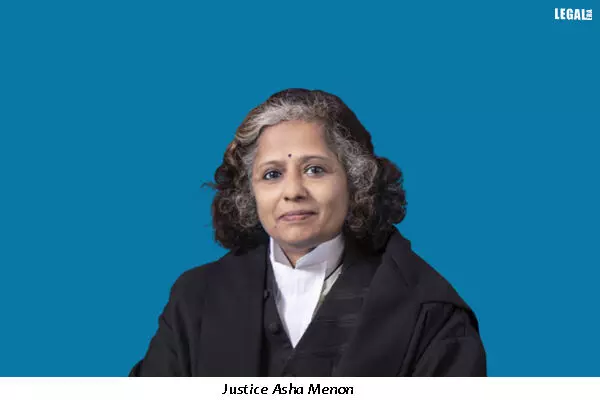- Home
- News
- Articles+
- Aerospace
- Artificial Intelligence
- Agriculture
- Alternate Dispute Resolution
- Arbitration & Mediation
- Banking and Finance
- Bankruptcy
- Book Review
- Bribery & Corruption
- Commercial Litigation
- Competition Law
- Conference Reports
- Consumer Products
- Contract
- Corporate Governance
- Corporate Law
- Covid-19
- Cryptocurrency
- Cybersecurity
- Data Protection
- Defence
- Digital Economy
- E-commerce
- Employment Law
- Energy and Natural Resources
- Entertainment and Sports Law
- Environmental Law
- Environmental, Social, and Governance
- Foreign Direct Investment
- Food and Beverage
- Gaming
- Health Care
- IBC Diaries
- In Focus
- Inclusion & Diversity
- Insurance Law
- Intellectual Property
- International Law
- IP & Tech Era
- Know the Law
- Labour Laws
- Law & Policy and Regulation
- Litigation
- Litigation Funding
- Manufacturing
- Mergers & Acquisitions
- NFTs
- Privacy
- Private Equity
- Project Finance
- Real Estate
- Risk and Compliance
- Student Corner
- Take On Board
- Tax
- Technology Media and Telecom
- Tributes
- Viewpoint
- Zoom In
- Law Firms
- In-House
- Rankings
- E-Magazine
- Legal Era TV
- Events
- Middle East
- Africa
- News
- Articles
- Aerospace
- Artificial Intelligence
- Agriculture
- Alternate Dispute Resolution
- Arbitration & Mediation
- Banking and Finance
- Bankruptcy
- Book Review
- Bribery & Corruption
- Commercial Litigation
- Competition Law
- Conference Reports
- Consumer Products
- Contract
- Corporate Governance
- Corporate Law
- Covid-19
- Cryptocurrency
- Cybersecurity
- Data Protection
- Defence
- Digital Economy
- E-commerce
- Employment Law
- Energy and Natural Resources
- Entertainment and Sports Law
- Environmental Law
- Environmental, Social, and Governance
- Foreign Direct Investment
- Food and Beverage
- Gaming
- Health Care
- IBC Diaries
- In Focus
- Inclusion & Diversity
- Insurance Law
- Intellectual Property
- International Law
- IP & Tech Era
- Know the Law
- Labour Laws
- Law & Policy and Regulation
- Litigation
- Litigation Funding
- Manufacturing
- Mergers & Acquisitions
- NFTs
- Privacy
- Private Equity
- Project Finance
- Real Estate
- Risk and Compliance
- Student Corner
- Take On Board
- Tax
- Technology Media and Telecom
- Tributes
- Viewpoint
- Zoom In
- Law Firms
- In-House
- Rankings
- E-Magazine
- Legal Era TV
- Events
- Middle East
- Africa
Delhi High Court orders illegal streaming websites to be blocked

Delhi High Court orders illegal streaming websites to be blocked
Several production houses had filed a suit to stop the airing of pirated movies and shows
The Delhi High Court has ordered the blocking of 34 illegal streaming websites providing access to pirated movies and shows.
Justice Asha Menon noted that the illegal websites created with the sole objective of pirating copyrighted works for commercial benefits could not be permitted to continue doing so till the disposal of the suit.
The court acted on the plea of six international movie production giants Netflix Studios, Disney Enterprises, Universal City Studios, Warner Bros Entertainment, Columbia Pictures and Paramount Pictures Corporation.
The plaintiffs had listed out the piracy of movies including Mulan, Lego Batman, Finding Nemo, Finding Dory, Aquaman, Wonder Woman, San Andreas and Joker to point out the "immense loss" caused to them. The TV series included Mob Psycho, Friends, Stranger Things, Sacred Games, Jojo's Bizarre Adventures and Arrow,
The court observed that 34 websites were created to upload pirated movies and TV programs.
The order underlined, "These websites are anonymous in nature. The information provided in the public domain regarding the owners of the websites is inherently incorrect or protected behind the veil of secrecy and hidden behind private domain services offered by various domain name registrars."
Finding "force" in the contention of the counsel for the plaintiffs, the court reasoned, "There is no gainsaying that these websites are actively streaming motion pictures and television content of the plaintiffs through illegal means. The legal notices issued to them have evoked no response,"
As a result, nine Internet service providers, made a party to the suit, were directed to block access to the 34 websites within 24 hours of receiving the order passed early this week.
Besides, the Department of Telecommunications and the Union Ministry of Electronics and Information Technology were directed to issue notifications calling upon the telecom service providers registered under them to disable access to these websites within 36 hours of receiving the order.
However, in the earlier order, the court had found it incorrect that the plaintiffs had joined all the websites in the present suit, as the creative content of each plaintiff varied from the other. It eventually allowed the plaint to be registered as a suit, noting that the reliefs claimed were against the same set of defendants. The court held that it could not reject the suit on the ground of this procedural objection.
"It is for that reason alone that the court is inclined not to direct the splitting up of this particular suit as separate suits to be numbered as such, also in the light of the fact that separate court fees have been paid. But it is not a practice that can be encouraged," the order stated.
The plaintiffs were represented by advocates Saikrishna Rajagopal, Sidharth Chopra, Suhasini Raina, Disha Sharma and Sanidhya Rao.



